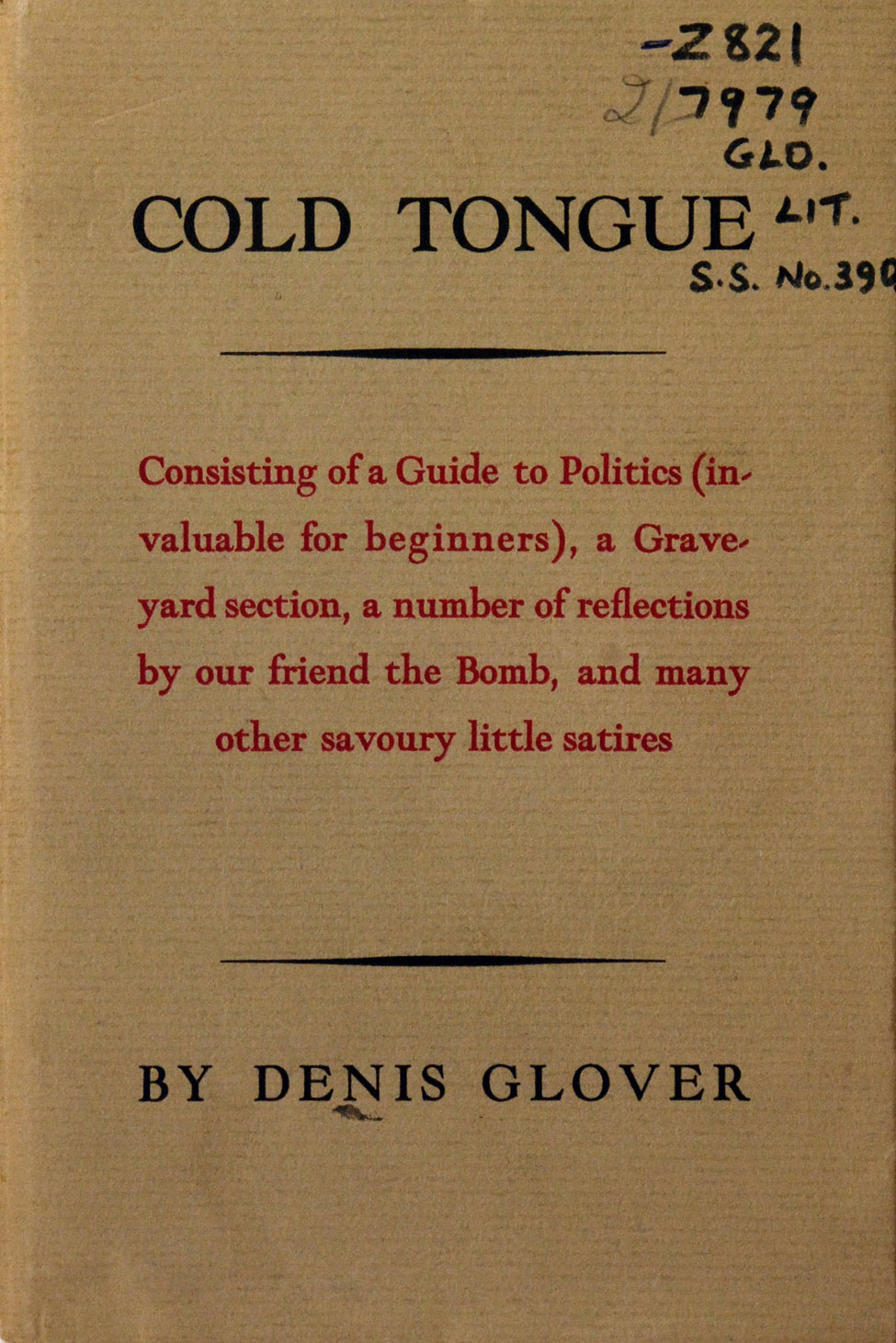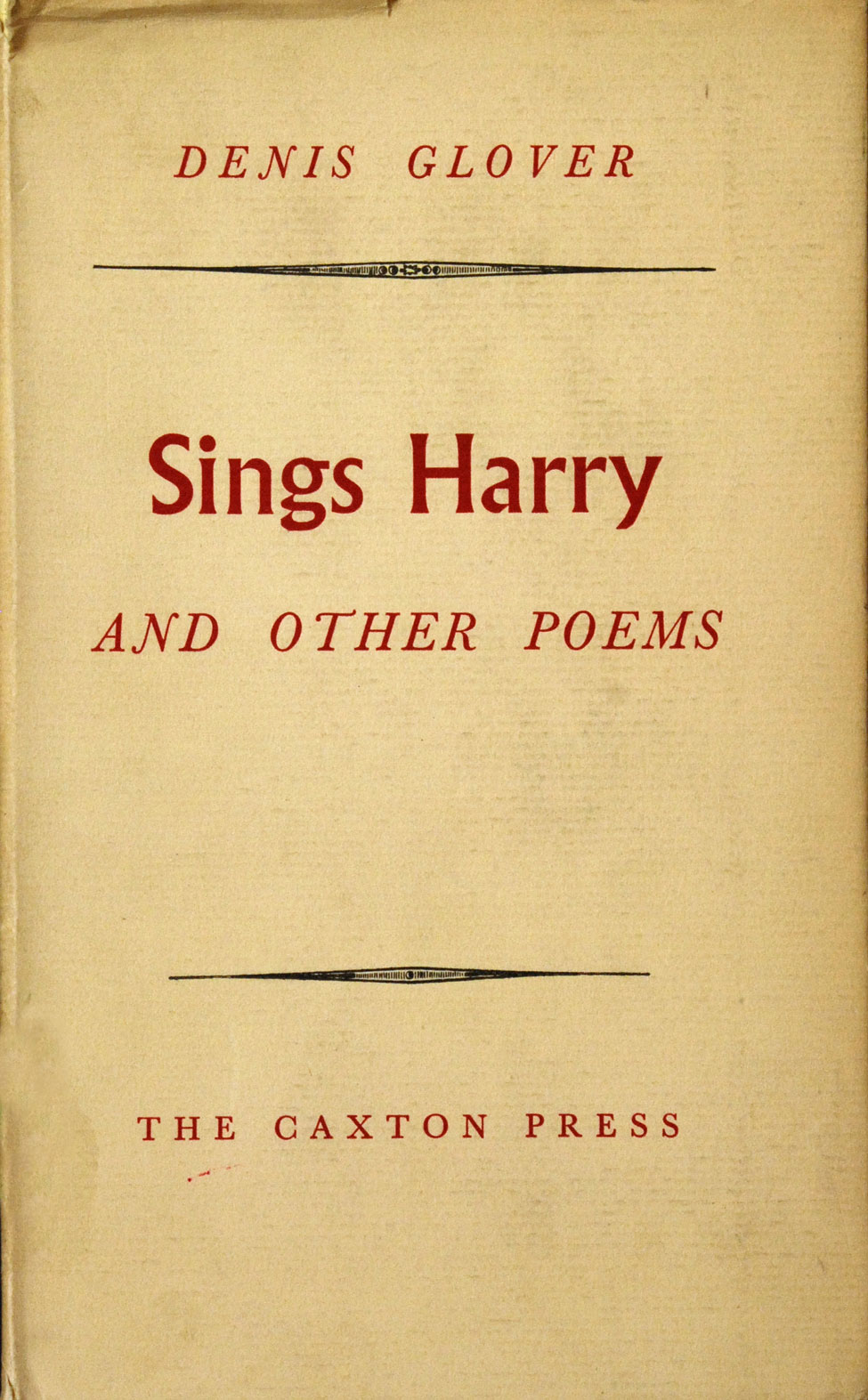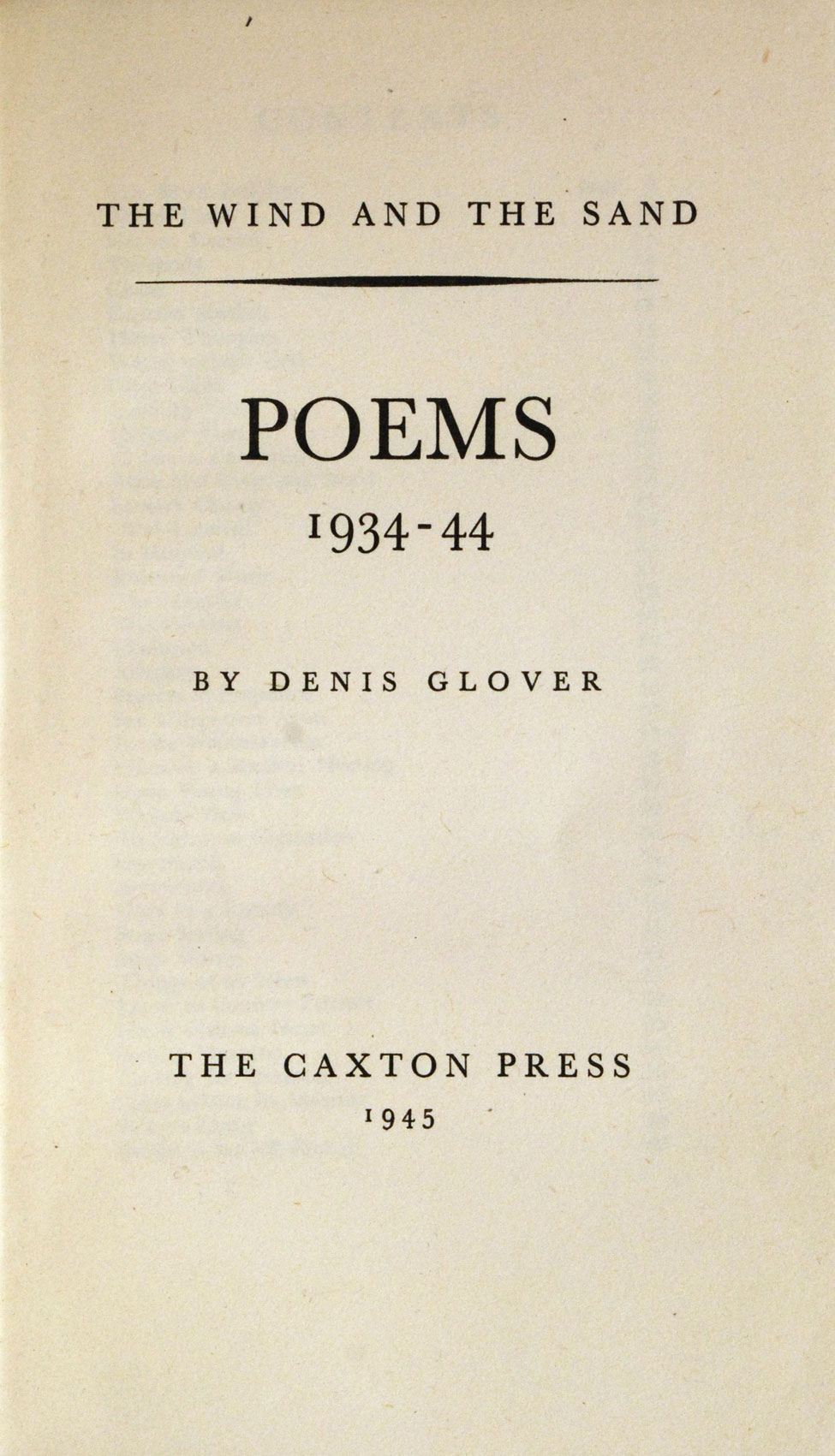Case 16

Denis Glover. Cold Tongue: Consisting of a Guide to Politics … a Graveyard Section, A Number of Reflections by Our Friend the Bomb, and Many Other Savoury Little Satires. Christchurch: The Caxton Press, 1940.
During the mid-twentieth century, the main outlet for locally written poetry was New Zealand Best Poems edited by C. A. Marris. According to Sarah Shief, Glover ‘hated the pallid and sentimental verse Marris appeared to encourage’, and instead aimed to promote ‘socially responsible poetry’ that addressed contemporary issues and spoke with a truly New Zealand voice (206). As a result, from its inception The Caxton Press dedicated itself to the publication and promotion of New Zealand’s home-grown literary talent.
Starting with these three works by Glover, the books in the next five cases represent just some of the poets whose works were published by Caxton early in their careers and who are now part of the New Zealand literary canon. Cold Tongue was the only title of Glover’s to appear in 1940, a year before his secondment to the Royal Navy.
Sarah Shief. ‘Glover, Denis’ in The Oxford Companion to New Zealand Literature edited by Roger Robinson and Nelson Wattie (Oxford: Oxford University Press, 1998): 205–207

Denis Glover. Cold Tongue: Consisting of a Guide to Politics … a Graveyard Section, A Number of Reflections by Our Friend the Bomb, and Many Other Savoury Little Satires. Christchurch: The Caxton Press, 1940.
Open image in new window

Denis Glover. Sings Harry and Other Poems. Christchurch: The Caxton Press, 1951.
The poems included in this volume were written by Glover over a ten-year period. Like his other characters Arawata Bill and Mick Stimpson, Harry is a rugged loner, one of the identifiable New Zealand ‘types’ about whom Glover wrote. His fourteen-poem ‘Harry’ sequence was written in an ‘uncluttered colloquial language’, setting it apart from the language of ‘Georgian sentimentality’ against which Glover railed (OCNZL 498). The book conveys ‘something of the wistful regret and disillusionment that one could easily attribute to Golver at this time’ and was the last book Glover worked on before his dismissal from Caxton in 1951 (Waite 11).
Sarah Shief. ‘Sings Harry’ in The Oxford Companion to New Zealand Literature edited by Roger Robinson and Nelson Wattie (Oxford: Oxford University Press, 1998): 498
Noel Waite. Adventure and Art: The Caxton Press (Wellington: National Library of New Zealand, 1998)

Denis Glover. The Wind and the Sand. Christchurch: The Caxton Press, 1945.
‘Mr Glover has made a selection of his poems over ten years to include not only better-known pieces but a number that have not appeared before’.
An Autumn List (1945)
The Wind and the Sand was Glover’s first publication after his return from active service during the Second World War. It is considered his first volume of mature verse, and includes poems about his experiences during the war and some early poems from Glover’s ‘Sings Harry’ sequence.



